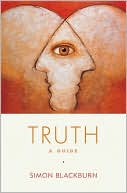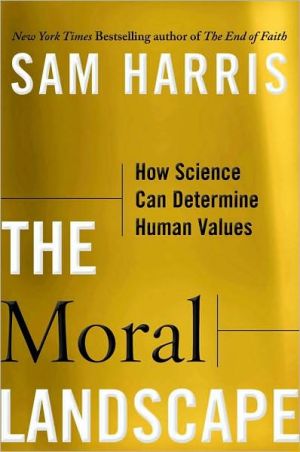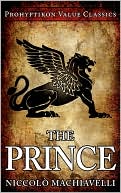Truth: A Guide
Search in google:
The author of the highly popular book Think, which Time magazine hailed as "the one book every smart person should read to understand, and even enjoy, the key questions of philosophy," Simon Blackburn is that rara avis—an eminent thinker who is able to explain philosophy to the general reader. Now Blackburn offers a tour de force exploration of what he calls "the most exciting and engaging issue in the whole of philosophy"—the age-old war over truth. The front lines of this war are well defined. On one side are those who believe in plain, unvarnished facts, rock-solid truths that can be found through reason and objectivity—that science leads to truth, for instance. Their opponents mock this idea. They see the dark forces of language, culture, power, gender, class, ideology and desire—all subverting our perceptions of the world, and clouding our judgement with false notions of absolute truth. Beginning with an early skirmish in the war—when Socrates confronted the sophists in ancient Athens—Blackburn offers a penetrating look at the longstanding battle these two groups have waged, examining the philosophical battles fought by Plato, Protagoras, William James, David Hume, Hans-Georg Gadamer, Jacques Derrida, Michel Foucault, Richard Rorty, and many others, with a particularly fascinating look at Nietzsche. Among the questions Blackburn considers are: is science mere opinion, can historians understand another historical period, and indeed can one culture ever truly understand another. Blackburn concludes that both sides have merit, and that neither has exclusive ownership of truth. What is important is that, whichever side we embrace, we should know where we stand and what is to be said for our opponents. Library Journal Blackburn (philosophy, Univ. of Cambridge; Think: A Compelling Introduction to Philosophy) wants to help readers attain a philosophical understanding of the concept of "truth." What does it mean, he asks, to make a statement that asserts this concept? The average person, perhaps, has no trouble doing so, but analysis of it goes to the heart of philosophical puzzlement. Blackburn reviews what philosophers, writers, novelists, scientists, and disparate thinkers have had to say about it, including Plato, Francis Bacon, Voltaire, Locke, Hume, Wittgenstein, William James, Rorty, and Nietzsche-especially Rorty and Nietzsche owing to their central and contrasting views. In this detailed consideration, Blackburn himself seems to favor objective standards for truth rather than the subjectivist, relativist position. His writing is fluid, highly literate, and deeply informed, but by its very nature it will be tough going for anyone who is not philosophically inclined and oriented. Highly recommended, then, for academic philosophy and literature collections.-Leon H. Brody, U.S. Office of Personnel Management Lib., Washington, DC Copyright 2005 Reed Business Information.
PrefaceixIntroductionxiiiChapter 1Faith, Belief and Reason1Clifford's Duties32Will and Passion in James73Fiction and Myth134Kinds of Animation19Chapter 2Man the Measure1Turning the Tables: the Recoil Argument252Modern Judo293The Variation of Subjectivities324The Moving Bull's-eye365Doing it Ourselves39Chapter 3Ishmael's Problem and the Delights of Keeping Quiet1Who Tells the Tale?472A Gestalt Switch553You Tell Me, or Down with Pilate584Moral Relativism635Man the Measurer676Summary70Chapter 4Nietzsche: the Arch Debunker1Facts or Interpretations?752Twilight of the Idols793Perspectivism854Adequate Words925Heraclitus and the Flux986The Darwinian Element104Chapter 5The Possibility of Philosophy1Getting Puzzled1092Four Responses1123Eliminativism1144Realism1175Deconstructing the Issue1216The Constructivist Corner1247The Example of Wittgenstein129Chapter 6Observation and Truth: from Locke to Rorty1Paradise Lost1392First Impressions1403Holism1444Davidson's Mantle1485Rorty's Talking World1516Keeping our Feet on the Ground1567Interlude: Law, Tennis and the Coffee-house1628A Political Message166Chapter 7Realism as Science; Realism about Science1No Miracles1752Science Red in Tooth and Claw1783Explaining from Within1804Animation and Belief Again1855Underdetermination190Chapter 8Historians and Others1Conceptual Schemes1992Mind Reading2053Mirroring2104Infirmities2135Collectives and their Histories2196Peace Breaks Out220Notes223Index235








